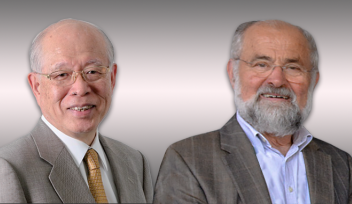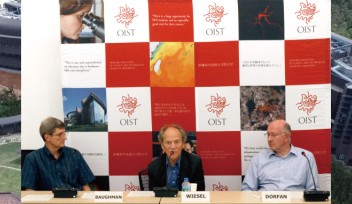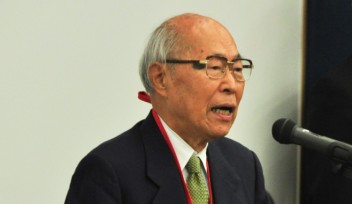Dr. Akito Arima speaks at Okinawa Employers Association
On February 8, 2011, Dr. Akito Arima, Co-chair of the OIST Board of Governors, gave a talk at a monthly meeting of the Okinawa Employers’ Association. About 110 people came to the event, filling a hotel reception room in Naha City. In his talk, entitled “Education and Science & Technology in Japan,” Dr. Arima discussed historical developments surrounding education in post-war Japan, problems facing higher education in the nation, and the background of the OIST project.
Citing statistics from several international surveys, Dr. Arima explained that what appears to be a large decline in the level of academic achievements by Japanese schoolchildren over the past few decades is in fact an inaccurate interpretation of the survey results. Pointing out that the number of participating countries in the surveys has increased, Dr. Arima said the decline relative to the increased pool of other countries is only modest and that the actual performance level of Japanese students has not declined. He did point out, however, that while Japanese children have great understanding of and interest in science and technology, the degree of the interest starts to wane as they grow older, underlining the importance of higher education. Concerning the national competitive grant for scientific research, Dr. Arima hailed the enactment of the Science and Technology Basic Law in 1996, saying that the grant has steadily increased from a little over 50 billion yen in 1989 to 260 billion yen in the proposed Fiscal Year 2011 national budget.
Dr. Arima further discussed higher education in Japan, saying that a comparison between Japan and other developed countries in the world highlights the strikingly low numbers of foreign students and faculty in Japanese universities. As an example, he explained that while the percentage of faculty members from overseas at Harvard University is 29 percent, it is only 5.1 percent at the average Japanese university. He emphasized that the numbers must increase for Japanese universities to be internationally competitive.
In closing, Dr. Arima talked about the OIST graduate university, stating that its goal is for at least half of its faculty and students to be non-Japanese, and to conduct education and research in English. He emphasized the geographical advantage of Okinawa’s being centrally located among the Asian countries and surrounded by the sea, and that Okinawa is also home to the largest population of centenarians in the world. Dr. Arima said these features offer various interesting research topics from marine research to longevity. He also expressed his hope for close collaboration between OIST and the University of the Ryukyus, and called for local support for OIST.
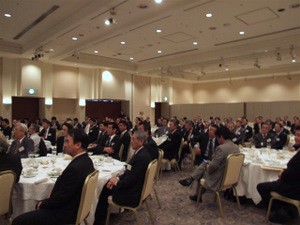
|
|
Members of the Okinawa Employers’ Association |
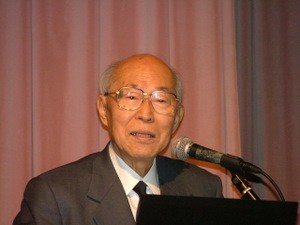
|
|
Dr. Akito Arima |
For press enquiries:
Press Inquiry Form











